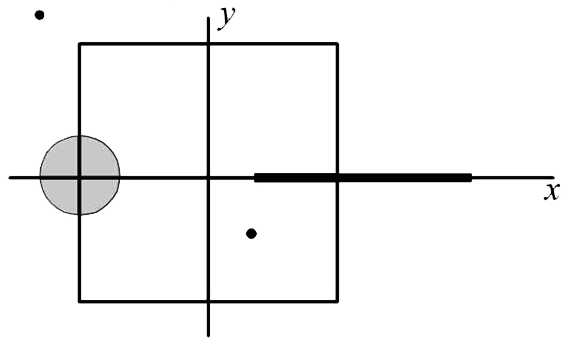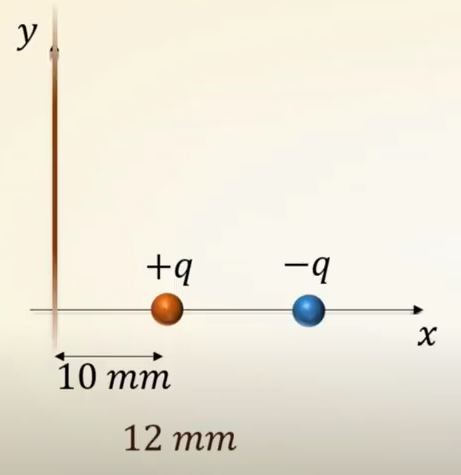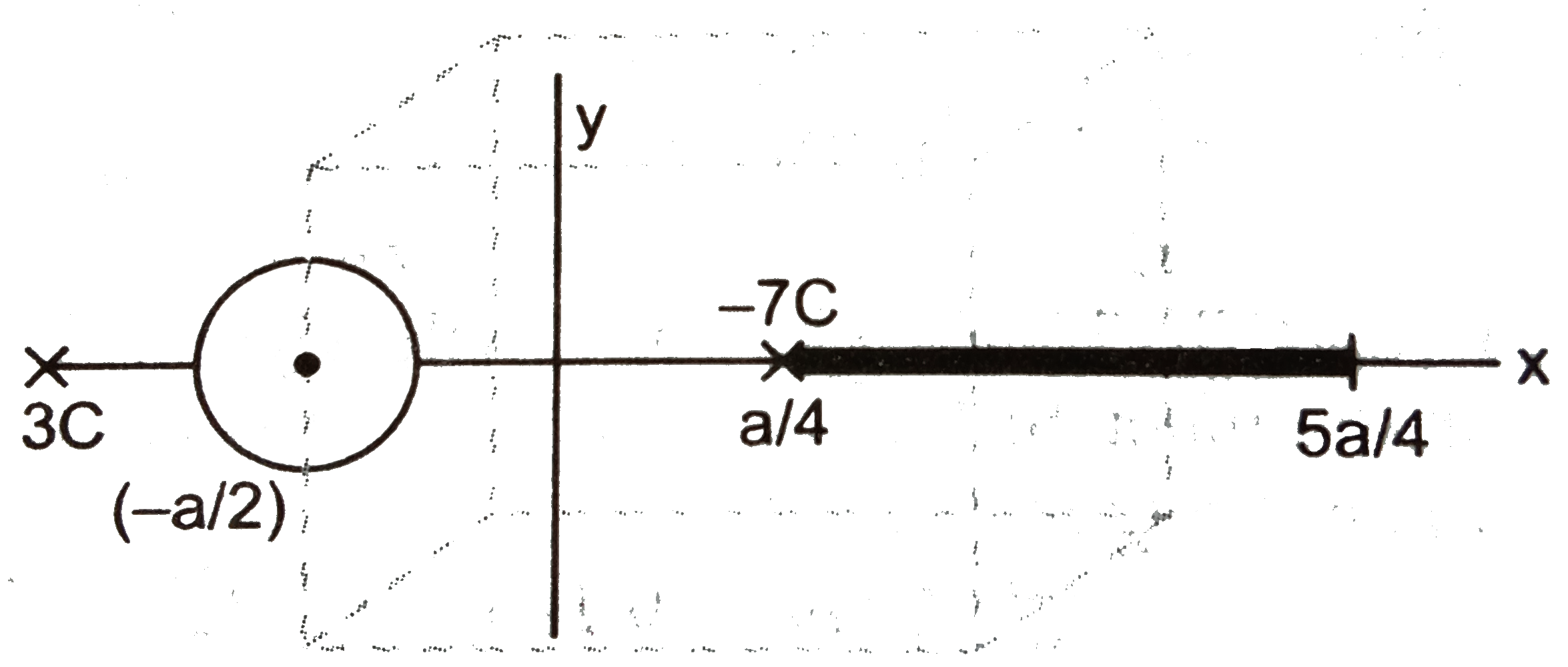A disc of radius a/4 having a uniformly distributed charge 6C is placed in the x-y plane with its centre at (−a/2,0,0). A rod of length a carrying a uniformly distributed charge 8C is placed on the x-axis from x=a/4 to x=5a/4. Two point charges −7C and 3C are placed at (a/4,−a/4,0) and (−3a/4,3a/4,0), respectively. Conisder a cubical surface formed by isx surfaces x=±a/2, y=±a/2, z=±a/2. The electric flux through this cubical surface is

−2Cε0
2Cε0
10Cε0
12Cε0
The correct Answer is:A
Step by step video, text & image solution for A disc of radius a//4 having a uniformly distributed charge 6C is placed in the x-y plane with its centre at (-a//2, 0, 0). A rod of length a carrying a uniformly distributed charge 8C is placed on the x-axis from x=a//4 to x=5a//4. Two point charges -7C and 3C are placed at (a//4, -a//4, 0) and (-3a//4, 3a//4, 0), respectively. Conisder a cubical surface formed by isx surfaces x=+-a//2, y=+-a//2, z=+-a//2. The electric flux through this cubical surface is by Physics experts to help you in doubts & scoring excellent marks in Class 12 exams.
Updated on:21/07/2023Topper's Solved these Questions
Similar Questions
" Two point charges "+2q" and "-q" are placed on "x" -axis at "(0,0,0)" and "(3,0,0)" respectively,How many points of zero electric potential are there in the plane "X=5?
View SolutionA line charge having a linear charge density of 3×10−6Cm is placed as shown in figure. A dipole is placed on x-axis as shown. Find the charge q if it is subjected to a force of 4N.

View Solution
Knowledge Check
A disc of radius a/4having a uniformly distributed charge 6C is placed in X−Y plane with its centre at (−a/2,0,0).A rod of length a carrying a uniformly distributed charge 8C is placed on the X-axis from x=a/4 to x=6a/4. Two point charges −7C and 3C are placed at (a4,−a4.0) and (−3a4,0) respectively. Consider a cubical surface formed by six surfaces x=±a2,y=±a2,z=±a2. The electric flux throgh the cubical surface is
 A−2C/∈0B2C/∈0C10C/∈0D12C/∈0
A−2C/∈0B2C/∈0C10C/∈0D12C/∈0A disc of radius a/4 having a uniformly distributed charge 6C is placed in the x-y plane with its centre at (−a/2,0,0). A rod of length a carrying a uniformly distributed charge 8C is placed on the x-axis from x=a/4 to x=5a/4. Two point charges −7C and 3C are placed at (a/4,−a/4,0) and (−3a/4,3a/4,0), respectively. Conisder a cubical surface formed by isx surfaces x=±a/2, y=±a/2, z=±a/2. The electric flux through this cubical surface is
 A−2Cε0B2Cε0C10Cε0D12Cε0
A−2Cε0B2Cε0C10Cε0D12Cε0Point charges +4q,−q are kept on the x-axis at points x=0,x=a and X=2a respectively, then
AOnly q is in stable equilibriumBNone of the charges are in equilibriumCAll the charges are in unstable equilibriumDAll the charges are in stable equilibrium
Point charges q1=4 μC and q2 = -2 μC are kept at point x = 0 and x = 4 respectively , electrical potential will be zero at points (where x is in cm)
View SolutionA charge q=10μC is distributed uniformly over the circumference of a ring of radius 3m placed on x-y placed with its centre art origin. Find the electric potential at a point P(0,0,4m)
View SolutionAn electrical charge 2×10−8 C is placed at the point (1,2,4) m. At the point (4,2,0)m, the electric
View SolutionPoint charges +4q,−q and +4q are kept on the x-axis at points x=0,x=a and X=2a respectively, then
View SolutionTwo charges -4 C and +4 C are placed at 10 cm apart. The potential at the center of the line joining two charges is
View Solution
